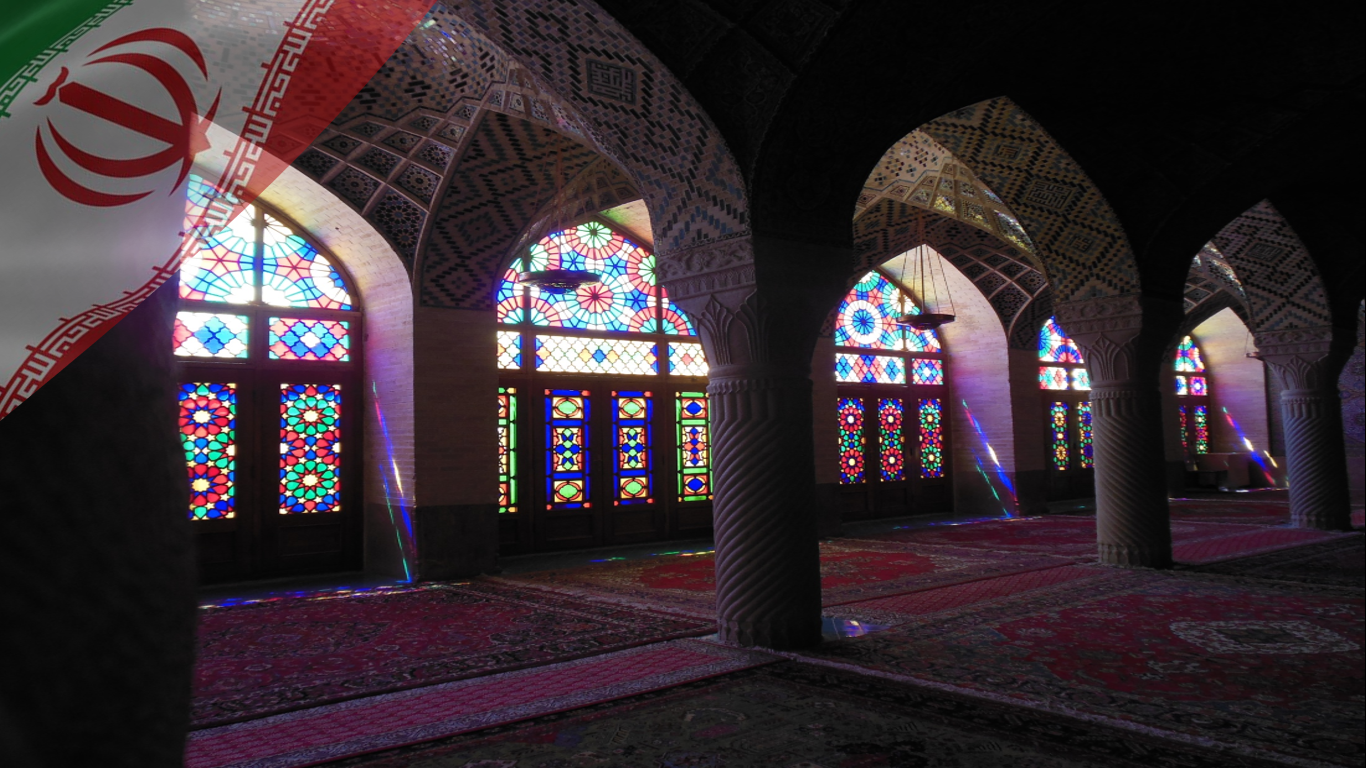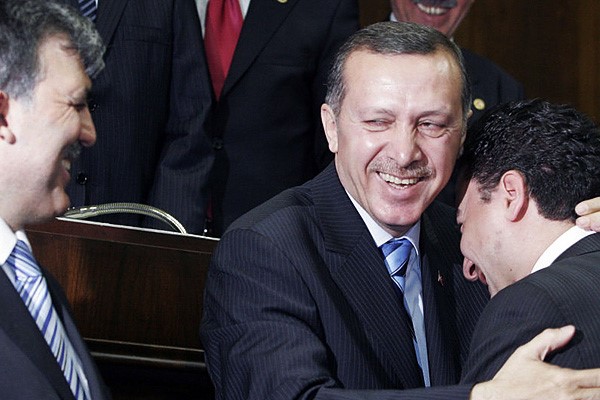Yaşam ve Adalet Partisi[1] – Forming of a New Political Platform
Three former influential politicians of the AKP decided to leave the party and form a new one. The name of the new political group is already known: Yaşam ve Adalet Partisi (YAP). However, we have not seen any official statement, the triumvirate also became clear: Ali Babacan, Ahmet Davutoğlu and Abdullah Gül. The creation of a new party should not be always a big issue, but in this story there are a lot of questions. Apart from the questions, hereby we try to give some answers also regarding the possible aim of the party and the fragmentation of the political system in Turkey.
As the most powerful and influential party of the Turkish political life, AKP is ruling the horizon since 2002 and more or less unify the conservative political sphere in the country. But as 17 years is not a short period of time – and this is also absolutely normal – there have been significant political changes since then. And this process gained speed after the coup d’etat in 2016 and the constitutional referndum a year later. First of all, a former MHP member, one of the most popular figure of those, who wanted to changed the leadership within the party, Meral Akşener left MHP and founded İyi Parti. Therefore, Devlet Bahçeli remained the head of the right-wing MHP. Unlike Akşener, he was also the key figure in the process during, which MHP started to cooperate with AKP. Thought MHP lost many of its voters, the semi-official MHP-AKP cooperation (called also cumhur ittifakı) gained political successes in the recent elections. However, also true, the MHP is also divided in this topic and as the party is getting less and less votes in the recent decades, it is also an obvious reaction from the society. In addition, when the leader of the party, Devlet Bahçeli was brought to hospital recently, different rumors stated that he has serious sickness and the politician got stroke. If something is to happen to the 71 years old Bahçeli, the next leader of the party can be the much younger, not well-known İzzet Ulvi Yönder. According to other sources, Yönder can be chosen only if resigns beforehand, Bahçeli makes the congress to vote for his ‘heir to the throne’, otherwise the membership can follow an other directive, which can differ from the AKP-MHP tandem.
In this context, Akşener was the strong and charismatic woman, who was against the presidential system and opposed the close relations with AKP. However, Akşener’s views are much closer to the political right, she became important player of the Turkish opposition and can play a decisive role in the future. This movement also indicates that in the right sphere, there are millions of voters, who are not satisfied with the present messages of AKP. Akşener was minister of interior in the middle of 90’s in Erbakan’s cabinet and became well known in some circles, when speaking about Abdullah Öcalan she said that he is an ‘Armenian offspring’ (Ermeni dölü).
Within this framework, if the formerly symbolic persons of AKP form an other party, it can be a serious challenge for Erdoğan and his team. Because after the nationalist, right-wing circles can vote for the İyi Parti, YAP can be a new choice for the liberal conservatives and those who want less confrontative politics. If we have a look at the most important figures of the YAP, we can see that their political activity and style is much more “EU-conform” and their level of acceptance in abroad also looks much better.
Also worth to mention that one of the most determined enemy of the YAP is the İyi Parti. According to Ümit Özdağ for instance, who failed to be the president of the MHP in 2006 and had to leave the party as well, Davutoğlu is not just the worst Prime Minister and Foreign Minister ever in Turkey, but with the acceptance of Syrian refugees, Davutoğlu caused the biggest challenge for Turkey. Özdağ, who learned in Germany and became an academic at the same time has written several works about Turkish foreign policy and the connection between the army and the state. He was a significant member of MHP until 2016. His father, Muzaffer Özdağ was the Vice President of MHP between 1965 and 1969.
The Triumvirate and the background
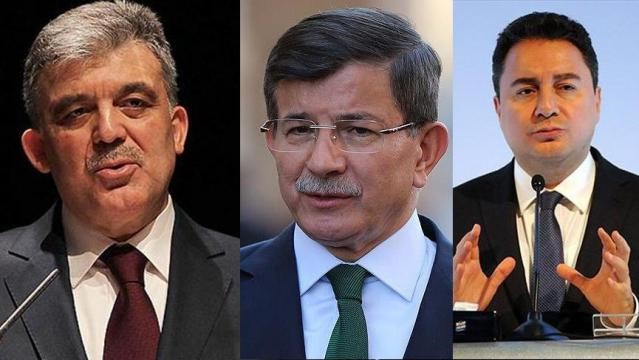
Most probably, Abdullah Gül is the most well known politician among the triumvirate. He is an economist, with Ph.D. and different expriences in the labour market. In 2001 he was one of the founders of the AKP and one year later became Prime Minister of Turkey. Later on he was also Deputy Prime Minister and the Minister of Foreign Affairs. In 2007 he was appointed as the president of Republic of Turkey.
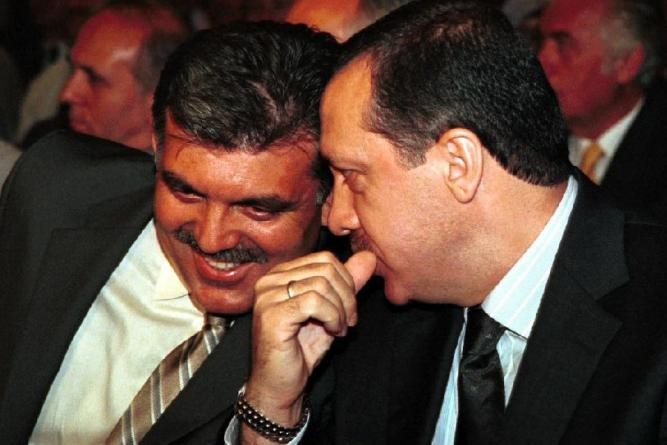
Ali Babacan is also a talented person, graduated as engineer in one of the best university of Turkey (ODTÜ). Later on studied and work in the US, and returned to Turkey in 1994. In 2001 he was founding and board member of AKP. After the victory in 2002 he was appointed as the Minister of State in charge of Economy and kept this title until 2007, when he became the Minister of Foreign Affairs. In addition, and this is also important, since 2005 he was the Chief Negotiator, and by that controlled Turkey’s accession negotiations with the EU.
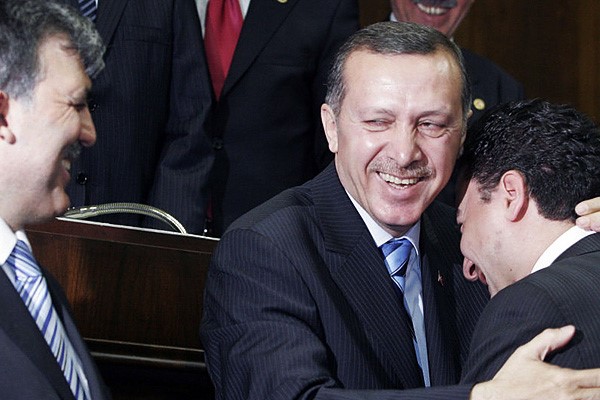
Ahmet Davutoğlu is an academic and an expert of political science. Since 1993 he is an associate professor, giving lectures from Istanbul to Malaysia in many universities. After 2002 he was appointed as Chief Advisor and served two governments. In 2009 he became the Minister of Foreign Affairs and after 5 years he was appointed as the Prime Minister of Turkey (2014-2016). At the same time, for two years he was also elected the leader of the AKP. Davutoğlu’s name is more ore less well-known for not only the politicians, but academics as well. His famous work, Strategic Depth (Stratejik Derinlik) written in 2001 became the most important thesis of the Turkish foreign policy for the 21th century. In connections with that, his fall is more ore less equal to the fall of his theory as well.
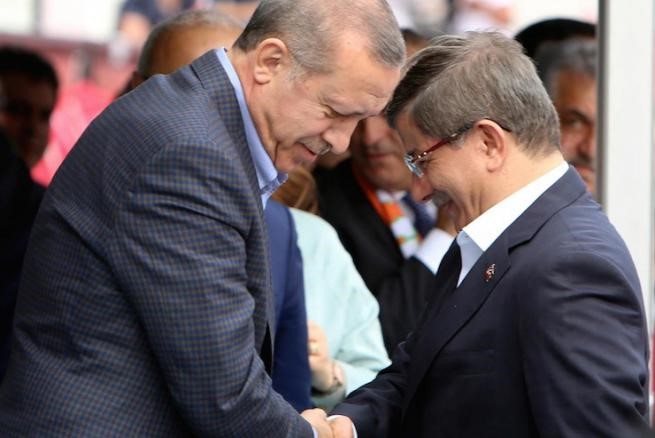
“Far away from the original philosophy”
Apart from the Triumvirate, the former Minister of Interior and Deputy Prime Minister, Beşir Atalay and the former Minister of Science, Industry and Technology, Nihat Ergün also can leave AKP and join to the new formation. Sadullah Ergin, the former Minister of Justice also among those who can play an important role in the formation of the new political movement.
In addition, our seventh name is Selçuk Özdağ the former Vice President of AKP, who also declared his desire to quit from the party. Özdağ gave an interview to Odatv, in which he underlined that there are serious, structural problems in Turkey: “The aim of our criticism was make the things better. We mentioned some shortages. We wanted to call up the members of the party that we do have some problems. If everything is OK, how could the price of the gas increased with 30%? If everything is OK, why do we have inflation? If everything is on the right way, why do we have fire in the kitchen? If everything is OK, why Turkey became a ping-pong ball between USA and Russia? We just raised these questions. They can extrude us from the party, but these problems will remain.” Mustafa Yeneroğlu, born in Germany, used to be a member of the Central Decision and Management Committee of AKP clearly expressed himself and the goal of the new political formation: “In the political life of Turkey, there is a serious emptiness in the central. A strong democratic block needs to be founded.”
Mustafa Öztürk, MP from Bursa also declared that he wants to leave the party, which according to him ‘is far away from the original philosophy‘.
However, there are signs, according to which Davutoğlu and Babacan will not be within one party. According to Suat Kınılıoğlu the former member of executive board of AKP (until 2012), who since then is coordinating an Ankara based think-tank, the two politicians totally differs and most probably they are working on launch different parties. According to this view, Babacan is in advance, because at least he has a kind of program that aims to solve mainly the economical problems. But in general, the most important articles and participants like the former member of the Grand National Assembly (TBB) Emin Şirin, the part will be led together by Babacan and Davutoğlu.
Neverthless, the new opposition (yeni muhalefet) already has its media surface. As the Turkish constitutional referendum was approaching, the tension became higher even within those who previously supported Erdoğan and the AKP. This process was visible also in media surfaces as well and finally those, who wanted to keep alive the right to criticism founded the newspaper called Karar in the spring of 2016. Among the founders we can find well-known persons from the AKP backed media conglomeration (Star Medya Grubu, Yeni Şafak newspaper, NTV television, etc.) like Mustafa Karaalioğlu, Mehmet Ocaktan and İrahim Kiras.
Additional perspectives: ‘Beka’, Kurds and the USA’
There are also people, who claim that the most important aim of the new party (or parties) is to keep the cumhur ittifakı below 50% in the next elections and break Erdoğan’s political hegemony in the country. Of course, within this framework the ‘beka meselesi’ (basically the question of independency and legitimacy) occurred again. According this logic, those, who support the foundation of the new party are “on the same track” with those, who want to decrease the Turkish regional influence and stability. And we can see also that those, who try to ‘undermine’ the Turkish state can get their ‘punishment’. And this can be a clear message for every political groups within the country. For instance, there is Canan Kaftancıoğlu’s case. The head of the biggest opposition party, CHP in Istanbul was sentenced by a court to 9 years and 8 months in prison in the beginning of September. The reason behind was insulting the president and spreading terrorist propaganda by sharing different tweets between 2012 and 2017.

Would you like to fight for democracy by saying ‘tekbir’ (Allahuakbar) and cutting throats. Damn your Allah, who you believe in!

Kurds in Gezi (park) did this and that, no didn’t they? Do not find excuse, just watch what your are doing and how you behave in Kobane
According to the tweets above, Kaftancıoğlu expressed her view on the coup d’etat happened on 15th July, 2016 and also emphasized her sympathy toward the Kurds in Kobane. And this indicates also that however we usually read papers about the deep and bloody Turkish-Kurdish rivalry in the country, the reality is much more complicated. Because there are millions with Kurdish origin, who are integrated to the “Turkish” society without giving up their identity. And also, there are many people who do not feel any intolerance against the Kurdish minority. Regarding Kaftancıoğlu’s case, the message of the power can be understood as follows: the state wants to decide whether the Kurdish question is tool for peace, or for war. By the way, the last in Kaftancıoğlu’s trial, the last decision was to remove her personal protection that was provided by the state so far… Of course, Kaftancıoğlu reacted harshly: ‘If something will happen to me, it is going to be Süleyman Soylu’s responsibility’ she said.
Anyway, the reaction of the Kurdish political party, HDP to the new political formation is also clear. According to Selahattin Demirtaş, the leader of HDP, the Kurdish party in Turkey, who has been released just a few weeks ago from Silivri, said that the new party can be only important if it regress the ‘fascist AKP-MHP coalition’. The interesting part of his speech was the following: “While the Syrian Kurds aspired to have cooperation with Turkey, the AKP government preferred to work together with the jihadists. And this pushed the Kurds step by step to the Russians and Americans.” Later on Demirtaş stated that Turkey should have kept connections alive with the Kurdish groups together with the official Syrian government as well. But instead of that, “Ankara’s choice was to support the jihadist groups and beat the Kurds or Baššār al-Asad.”
Meanwhile, after the last Turkish military operation (Barış Pınar harekatı) in Syria has started, the press agreed on that by gaining important successes in the foreign policy, AKP also collected some good points from the voters and managed to stop the decrease of the popularity. According to the surveys, one of the most important factor of this process was the direct conflict with the USA. And Erdoğan nowadays openly criticizes Washington. Last time he directly accused them by cooperation with terrorist, which is basically not a new phenomena in the Middle East. Also in Turkey, there are deep roots of the anti-American feelings. And politically this was always popular from right wing to the far left as well. That is the reason why from Alpaslan Türkeş to former Prime Minister, founder of Welfare (Refah) Party Necmettin Erbakan and the famous alevi aşık, Mahzuni Şerif important and well known persons, time by time expressed their ideas and feelings against the USA. After the coup d’état happened in 2016, Fethullah Gülen and his movement also strengthened the anti-American feelings in the society and in the Turkish political life.
Also true that Trump’s style does not make the things easier. Last time he addressed a letter to Erdoğan in which he wrote the followings: “You don’t want to be responsible for slaughtering thousands of people, and I don’t want to be responsible for destroying the Turkish economy – and I will. I’ve already given you a little sample respect to Pastor Brunson.” Later on continues like this: “General Mazloum [the leader of YPG, the American backed Kurdish military group in North-East Syria] is willing to negotiate with you, and he is willing to make concessions that they would never have made in the past. I am confidentially enclosing a copy of his letter to me, if just received. History will look upon you favorably if you get this done the right and human way. It will look upon you forever as the devil if good things don’t happen. Don’t be tough guy. Don’t be a fool!” But before going too far, it did not mean a serious obstacle in the level of US-Turkey bilateral relations.
All in all, it looks like obvious that the long lasting AKP government will create its new opposition and that phenomena is understandable for at least two reasons. Firstly, almost every political group creates its new competitor(s) within some decades. This is probably axiomatic that sooner or later but there will be a group of people who stand up and create a new party or at least protest against the actual ruling party by leaving it.
In Turkey, 17 years – since the AKP is governing – is the second longest period of time in last 120 years, when one party rules the political life. Earlier only CHP had better performance between 1923 and 1950. And that was the time of Atatürk and his successors, who founded the republic. Secondly, and this can be an indicator in the process, after a prosperous period, since 2016 Turkey faces serious economical and social challenges. The Turkish currency has lost much of from its value and the willingness of international credit providers to finance the Turkish investments is decreasing. Inflation and unemployment rate is growing, while the issue of Syrian refugees still unsolved and approximately 300 Arab kids born every day in the country.
According to the latest gossips, the possibility of early election in 2020 or in 2021 is also growing, which can make the foreign investors and international stakeholders feeling disturbed. In addition, the question of thousands of terrorists with different passports, escaping from Syrian also can harshly damage the reputation of Turkish foreign policy. In this framework, not a surprise that Erdoğan gave his message to whom it may concern that Turkey is going to kick out those terrorists, who have some valid nationality. Because Turkey wants to avoid to be sacrificed in the altar of ‘anti-terrorist war’, in which by the way each and ever participant has many many things to hide.
[1] Party of Life and Justice

